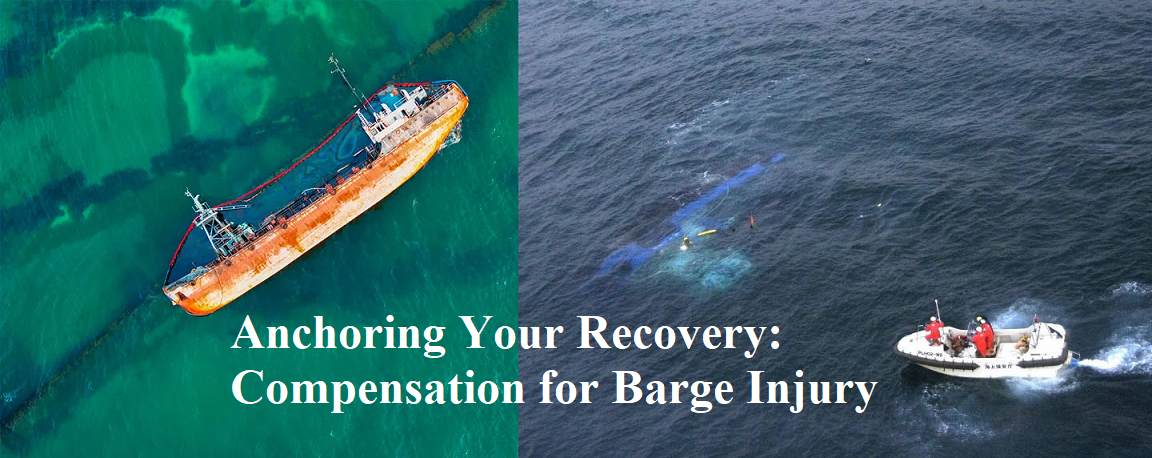
The barge industry presents an essential aspect of our modern global economy, offering cost-effective, efficient shipping methods for various goods and raw materials. Although not as fast as air or rail transport, barges boast impressive capacity, allowing them to carry heavy weighted loads over considerable distances across water bodies. However, industries that have a magic wand for economic prosperity often come with their unique sets of hazards. Barge-related operations are not exempt, raising a significant concern over worker safety and the resultant injuries, a risk industry players must consistently address.
Despite the plethora of safety regulations in place, accidents within the barge industry still occur. These accidents often result in severe, life-altering injuries that affect not only the victim’s physical and mental health but also their financial well-being. Many factors contribute to these incidents, from equipment malfunction and inadequate training to unfavorable weather and operational negligence. Seeking financial compensation with the help of a personal injury lawyer for such incidents is a critical step for victims. It is a means of gaining respite from the financial burden brought about by these injuries while also serving as a deterrent to lax safety protocols.
Laws and Regulations Protecting Barge Workers
One key protective measure for barge-related injury victims is the existence of laws and regulations such as the Merchant Marine Act of 1920, more commonly known as the Jones Act. The Jones Act is a federal law that provides protection to seafarers, including barge workers. It gives these workers the right to seek damages from their employers if their injuries arise from negligence, whether that’s inadequate training, poorly maintained equipment, or even violating standard safety procedures. The Jones Act covers even minor negligence that might contribute to an injury.
The Jones Act is not the only legislative protection for barge workers. The Longshore and Harbor Workers’ Compensation Act provides coverage for maritime workers who do not qualify under the Jones Act. The Occupational Safety and Health Administration (OSHA) establishes and enforces protective standards to ensure safe and healthful conditions for workers. These laws and regulations collectively work in union to ensure a safety net for maritime workers, reinforcing their rights to a safe working environment, and providing a legal avenue to seek recompense when things go awry.
Seeking Financial Compensation
The process of seeking financial compensation can often be daunting and complex. It typically starts with getting prompt medical treatment after the accident and collecting substantial evidence, including photographs, medical records, and witness accounts, to corroborate the event. The victim then needs to report the injury to the employer and initiate the claim process. A key factor here is to file the claim within the prescribed time limit as per the relevant act or law.
Hiring a personal injury lawyer specializing in maritime law can prove invaluable. Their knowledge of the laws and statute limitations can guide victims through the technicalities involved in claiming compensation. They can help negotiate with the insurance company, represent the victim before the courts if necessary, and ensure that they receive the maximum possible compensation for the losses incurred. Sourcing a personal injury lawyer can also provide emotional support, helping ease the victim’s mental strain during this challenging period.
Types of Financial Compensation Available
Financial compensation in the aftermath of a barge-related accident serves to alleviate the financial strain experienced by the victim. One common form of this recompense is wage replacement. Wage replacement provides a cash benefit to victims who are unable to earn their regular income due to the injury. The premise behind this compensation is to protect the victim from financial ruin due to a loss of income while they are recovering from the injury.
Compensation also typically covers medical bills arising from the injury. This includes bills for immediate medical care, rehabilitation costs, and ongoing therapy if required. Certain scenarios can also warrant compensation for pain and suffering, which aims to compensate for the physical pain and emotional distress caused by the injury. In extreme cases where severe injuries lead to permanent disability or the need for lifelong care, the victim can claim compensation to cover these costs as well.
Choosing the Right Legal Help
Choosing the right legal counsel is an indispensable part of fighting for rightful compensation. Given the specific nature of barge-related injuries and the laws governing them, it’s important to select an attorney specializing in maritime law. An attorney well-versed in this niche field will possess a thorough understanding of the legalities involved, from filing deadlines to procedural requirements and potential defenses. Their expertise can prove instrumental in framing a compelling case and significantly enhance the chances of receiving maximum compensation.
Specialization is not the only factor to consider when choosing a legal representative. Individuals seeking compensation should evaluate the attorney’s reputation, their experience with similar cases, and their track record of successful settlements and verdicts. A strong rapport, clear communication, and a firm commitment to the victim’s best interests should also contribute to the decision. Personal injury attorneys have the resources to carry out thorough case investigations and can professionally work through legal challenges.
Financial compensation plays a critical role in offsetting the physical, emotional, and economic hardships faced by barge injury victims. Understanding the legalities around it and finding appropriate legal help are both essential steps towards achieving the justice these victims deserve.

